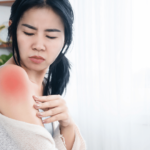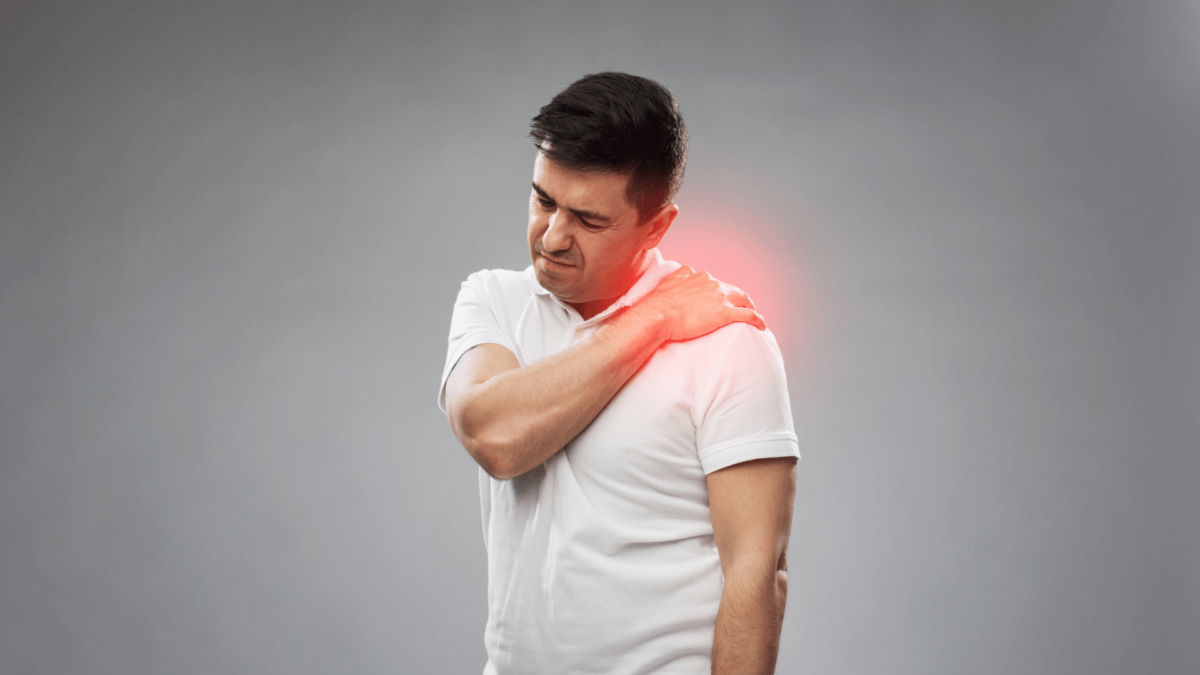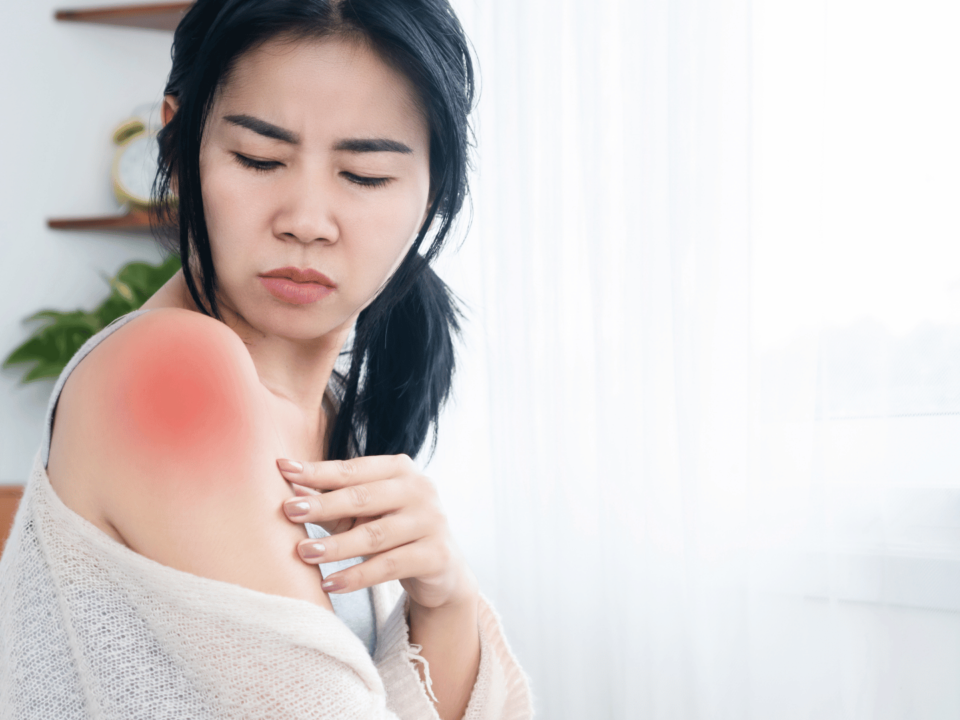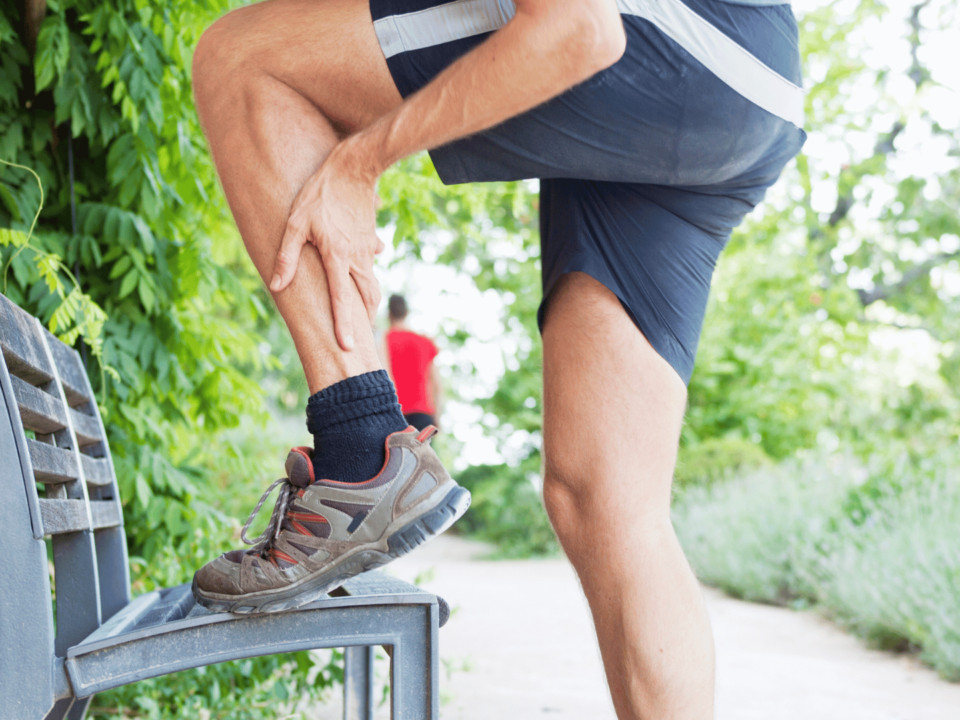
Rotator cuff surgeon near me: Find trusted specialists in your area
April 28, 2025
How to Get Rid of Shoulder Pain From Lifting Weights: Tips & Exercises
May 13, 2025Do you notice a clicking, popping, or snapping sound in your shoulder—especially when lifting your arm or rotating it? If it’s accompanied by pain, it could be your body’s way of warning you that something’s not right.
While occasional shoulder clicking can be harmless, consistent clicking with pain often signals an underlying issue that needs attention. In this article, we’ll break down the most common causes of shoulder clicking and pain, and share practical, expert-approved strategies for relief.
Click here to learn more about pain management
Is shoulder clicking normal?
Occasional, painless clicking—often referred to as crepitus—can be normal and caused by:
- Gas bubbles in the joint
- Natural friction between structures
- Ligaments snapping over bone
But if the clicking is repetitive, painful, or limits your movement, it may indicate:
❌ Inflammation
❌ Joint instability
❌ Tendon or cartilage damage
Common causes of shoulder clicking and pain
Here are the leading reasons your shoulder might be clicking and hurting:
1. Rotator cuff tendinitis or tear
The rotator cuff consists of muscles and tendons that stabilize the shoulder. Repetitive movements, lifting, or age-related degeneration can lead to:
- Tendinitis (inflammation of the tendons)
- Tears (partial or complete)
Symptoms:
- Pain when lifting or rotating the arm
- Weakness
- Clicking or popping sounds
- Pain at night or while lying on the affected shoulder
2. Shoulder impingement syndrome
When lifting your arm, the space between the shoulder bones narrows and can pinch tendons or the bursa, leading to inflammation and mechanical clicking.
Symptoms:
- Sharp pain when reaching overhead
- Clicking during movement
- Pain with sleeping on the affected side
3. Labral tear (SLAP lesion)
The labrum is a cartilage ring that stabilizes the shoulder socket. A tear can result in clicking, locking, or catching sensations.
Symptoms:
- Deep, dull shoulder pain
- Clicking or catching inside the joint
- Instability or weakness
- Pain during overhead activities
4. Shoulder instability or previous dislocation
An unstable shoulder joint may shift or partially dislocate during movement, causing clicking and discomfort.
Symptoms:
- Clicking or popping
- A feeling that the shoulder is “slipping out”
- Weakness
- History of injury or dislocation
5. Scapular dyskinesis (abnormal shoulder blade movement)
Sometimes, the shoulder blade doesn’t move properly during arm motion, creating abnormal mechanics and clicking.
Symptoms:
- Pain near the shoulder blade or upper back
- Clicking when reaching or lifting
- Muscle fatigue
6. Osteoarthritis or degenerative joint changes
As cartilage wears down with age or overuse, bone-on-bone friction can cause cracking, creaking, or grinding sounds.
Symptoms:
- Deep joint pain
- Stiffness
- Grinding or crunching
- Limited mobility
How to relieve shoulder clicking and pain
The good news? Most cases can be managed with non-surgical treatment and proper self-care.
✅ 1. Rest and activity modification
Avoid activities that aggravate your shoulder—especially overhead lifting, pushing, or pulling. Give your shoulder time to heal and reset.
✅ 2. Apply ice or heat
- Use ice for recent inflammation or pain after activity
- Use heat to relax tight muscles or warm up before movement
Apply for 15–20 minutes a few times a day.
✅ 3. Strengthening and stretching exercises
Targeted exercises can improve joint stability and reduce mechanical clicking. Key areas include:
- Rotator cuff strengthening (external rotations, side-lying raises)
- Scapular stabilization (rows, wall slides)
- Posture correction (chest stretches, thoracic extensions)
💡 Tip: Always consult a physical therapist before starting a rehab program.
✅ 4. Physical therapy
A physiotherapist can:
- Assess your shoulder mechanics
- Identify muscle imbalances or postural issues
- Provide manual therapy, ultrasound, or TENS
- Design a personalized rehab plan
✅ 5. Improve your posture
Poor posture can lead to impingement or scapular dyskinesis. Be mindful of:
- Sitting upright at your desk
- Keeping your shoulders relaxed and not hunched
- Using a standing desk or ergonomic chair if needed
✅ 6. Anti-inflammatory medication (short-term use)
Over-the-counter NSAIDs like ibuprofen can help reduce pain and inflammation—but should be used cautiously and not as a long-term solution.
✅ 7. Medical intervention (if needed)
If conservative treatment doesn’t help, your doctor may recommend:
- Corticosteroid injections to reduce inflammation
- MRI or ultrasound imaging to confirm diagnosis
- Surgical options for labral tears, rotator cuff tears, or severe instability
When to see a specialist
See a shoulder specialist or orthopedic surgeon if:
- Clicking is painful and persistent
- You experience instability or weakness
- Your symptoms last more than 4–6 weeks
- You’ve had a traumatic injury
- Daily life or sleep is affected
Early intervention can prevent minor issues from becoming major ones.
Final thoughts
Shoulder clicking with pain is your body’s way of saying something’s not quite right. While occasional clicking might be harmless, persistent or painful clicking shouldn’t be ignored.
With the right care—rest, physical therapy, strengthening, and posture correction—you can often find relief without surgery. And if the issue is more serious, an accurate diagnosis and expert treatment plan can get you back to a pain-free life.
FAQs
Why does my shoulder click when I lift my arm?
It may be due to a rotator cuff issue, impingement, labral tear, or poor shoulder mechanics.
Is shoulder clicking always bad?
No. Painless clicking can be harmless, but painful clicking is often a sign of injury or inflammation.
Can I treat shoulder clicking at home?
Yes—rest, gentle exercises, posture correction, and ice/heat can help. For ongoing pain, see a physiotherapist or doctor.
How long does it take to fix shoulder clicking?
Mild cases may resolve in a few weeks with consistent care. More complex issues may take 2–3 months or longer.
Should I stop exercising if my shoulder clicks?
Avoid painful or overhead exercises. Switch to shoulder-friendly movements and consult a professional.
Medical Disclaimer
The information provided in this article is for informational purposes only and should not be considered a substitute for professional medical advice, diagnosis, or treatment. Always seek the advice of your physician or another qualified health provider with any questions you may have regarding a medical condition or treatment. Never disregard professional medical advice or delay in seeking it because of something you have read in this article.




